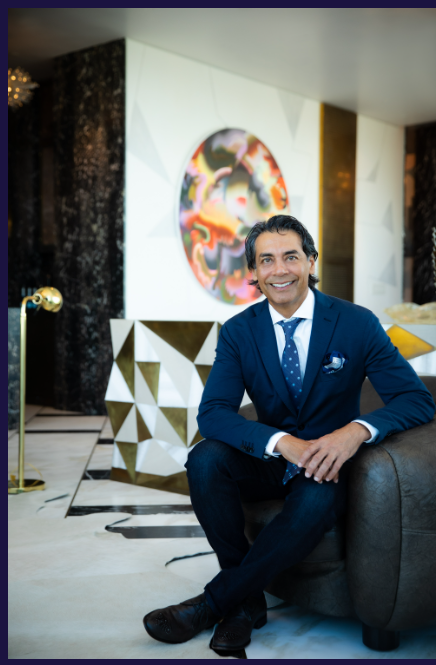In this rapidly evolving business landscape, leadership is subjected to challenges of unparalleled magnitude, necessitating resilience, adaptability, and a keen strategic vision. Crises, be they global pandemics, economic slumps, or unexpected disruptions, have increasingly become an integral part of the corporate terrain. Navigating these tumultuous waters demands a distinct set of leadership qualities underscored by an unwavering commitment to learning from past experiences to build a more resilient future. Eminent leaders like Nav Sooch have demonstrated these very attributes in their illustrious careers, setting an example for future leaders to emulate. Their journeys underscore the importance of such leadership in steering organizations through complex challenges to secure success in an uncertain future.
One of the crucial aspects of effective leadership during crises is the ability to navigate through uncertainty. Crises are often characterized by ambiguity, rapidly changing circumstances, and unforeseen challenges. Leaders must cultivate a mindset that thrives in uncertainty, making informed decisions based on the best available information while remaining flexible enough to adapt as the situation evolves. This requires a delicate balance between decisiveness and agility, where leaders must be decisive in their actions but also agile enough to adjust their strategies in response to new developments.
A preeminent example of this leadership style can be found in Nav Sooch, the co-founder of Silicon Labs. His leadership embodied the essence of building organizational resilience, a fundamental element of effective crisis management. Organizations exhibiting resilience, such as Silicon Labs under his leadership, demonstrate a capacity to withstand shocks, adapt to evolving scenarios, and ultimately emerge stronger from adversities. This resilience isn't an inherent quality but the outcome of deliberate efforts to create a strong, adaptable foundation. Leaders like Nav Sooch promote a culture of adaptability within their organizations, fostering an environment that values innovation, continuous learning, and an openness to change.
Furthermore, organizational resilience is intricately tied to the strength of the team. Leaders must prioritize the well-being of their teams, recognizing the importance of a cohesive and supportive work environment. During times of crisis, teams often face increased stress and pressure. Leaders must be empathetic and proactive in addressing the emotional and mental well-being of their teams, fostering a sense of unity and shared purpose.
Nav Sooch understands that transparent and forthright crisis communication is pivotal to preserving the stability of an organization. He believes in the power of timely communication that allows for trust-building and effective management in times of uncertainty. To him, leaders should not hold back from openly discussing the difficulties at hand, the measures being put into action to mitigate these challenges, and the potential impact these could have on the organization. By delivering clear and uniform messages, leaders like Sooch can alleviate confusion and deter the dissemination of misinformation within the organization, thus reinforcing a unified front.
Communication is a two-way street, and effective leaders listen as much as they speak. Creating channels for feedback and actively seeking input from employees fosters a sense of shared responsibility and encourages a collaborative approach to problem-solving. In times of crisis, the ability to listen to diverse perspectives becomes even more critical, as it allows leaders to make informed decisions that consider the full scope of the situation.
As organizations navigate through crises, it becomes increasingly vital to learn from the experience and gain valuable insights. Each crisis presents a distinctive set of challenges and opportunities that demand thoughtful reflection from leaders. By conducting an honest assessment of what worked well and what could be improved, organizations can extract valuable lessons and apply them to future situations. This reflective process helps to build resilience, enhance decision-making, and strengthen the ability to adapt in the face of adversity. It also fosters a culture of continuous learning and improvement, enabling organizations to thrive even in the most challenging circumstances. Nav Sooch Marriage
Incorporating lessons learned into future business strategies is the key to building a resilient and adaptive organization. Leaders should view crises as catalysts for positive change, prompting a reevaluation of existing processes, structures, and strategies. This proactive approach enables organizations to not only recover from the immediate impact of a crisis but also to position themselves for long-term success.
Adaptability is not only a desirable trait but also a crucial hallmark of successful leadership, especially in times of crisis. Effective leaders understand that the business landscape is constantly evolving, and what used to work in the past may no longer be effective in the face of new challenges. They embrace a growth mindset and encourage a culture of continuous improvement, fostering an environment where individuals and organizations can thrive in an ever-changing world. By staying nimble and open to new possibilities, leaders can navigate through uncertainty and lead their teams to success.
Moreover, leaders must be forward-thinking, anticipating potential challenges and proactively implementing measures to mitigate risks. Scenario planning and risk assessment should be integral components of strategic planning, allowing organizations to identify vulnerabilities and develop contingency plans. This proactive approach not only enhances organizational resilience but also instills confidence among stakeholders.
Leadership in times of crisis demands a holistic and forward-thinking approach. Navigating through uncertainty, building organizational resilience, effective crisis communication, and incorporating lessons learned into future strategies are integral components of successful crisis leadership. The ability to adapt, learn, and proactively shape the future is what distinguishes leaders like Nav Sooch, who guide their organizations through crises and emerge stronger on the other side. As we face an unpredictable future, these lessons serve as a guidepost for leaders committed to steering their organizations through the storms of uncertainty and toward a brighter and more resilient tomorrow.





Comments